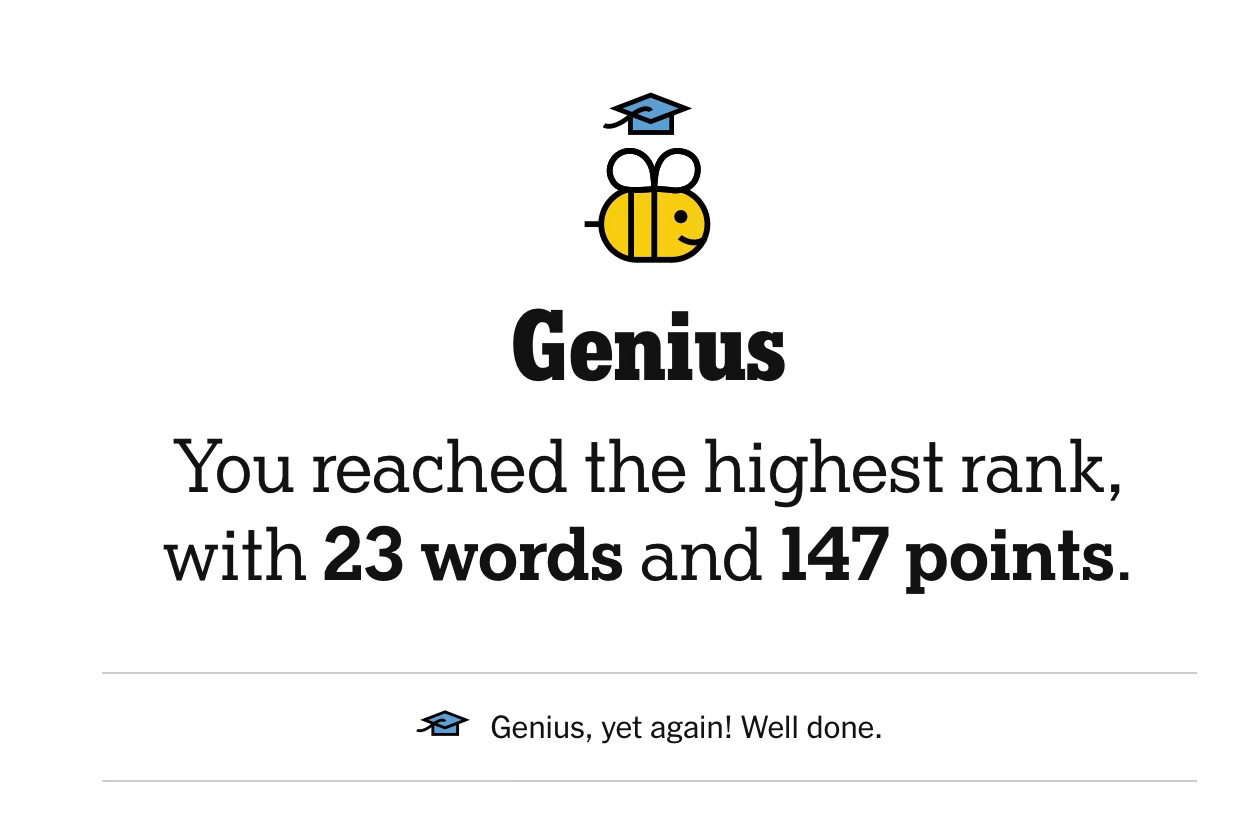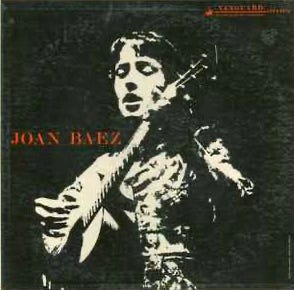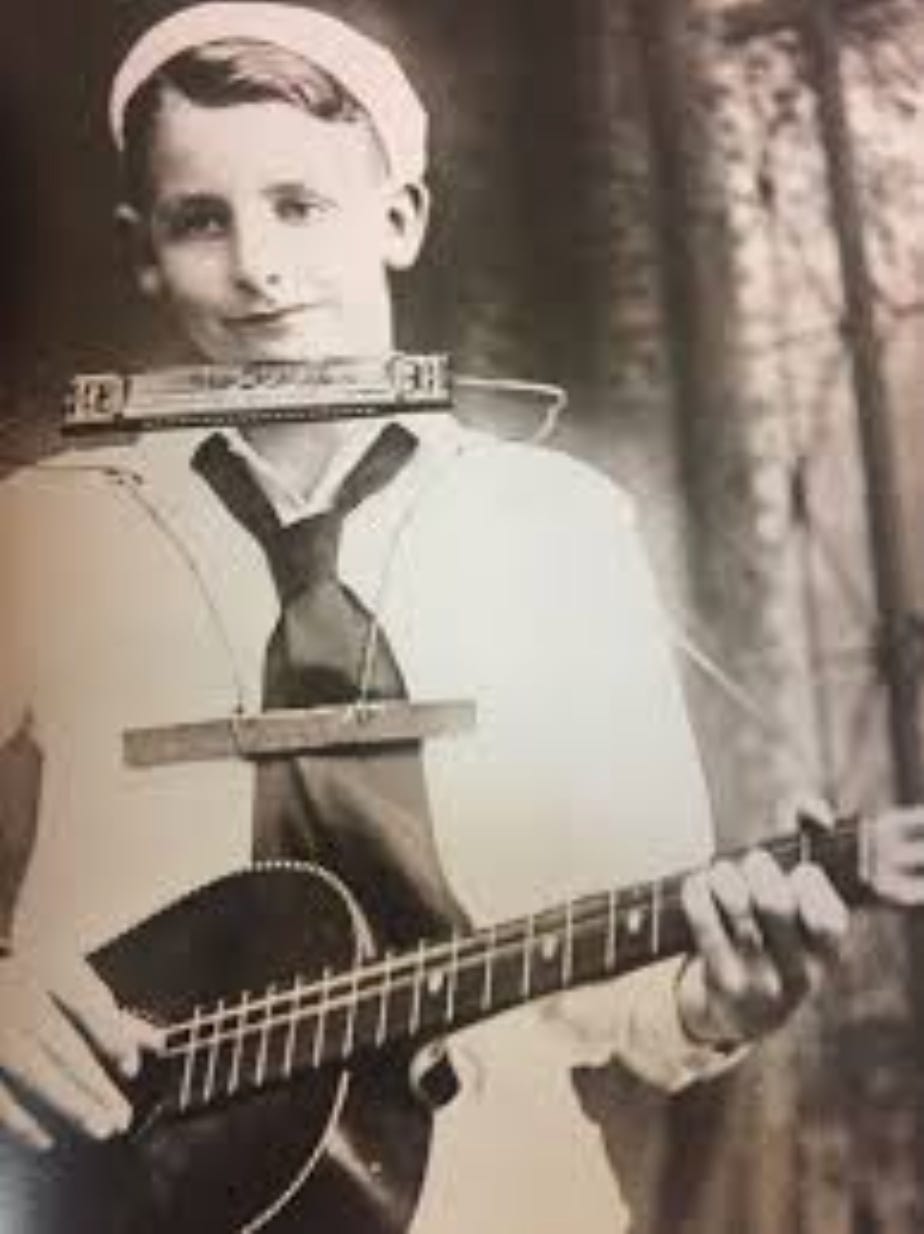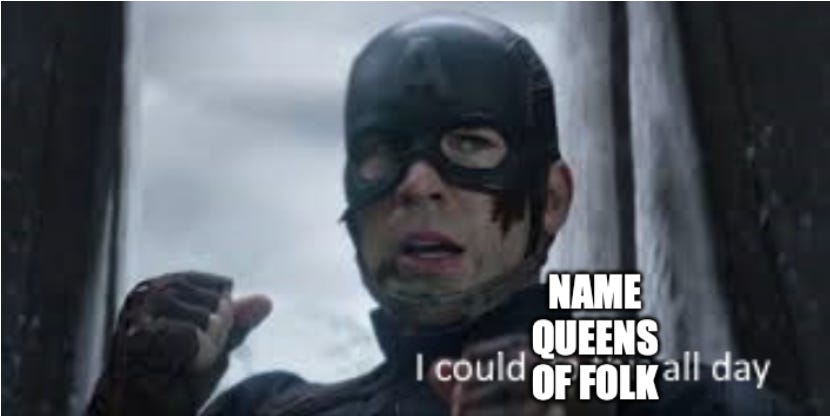These are, uh, four of my favorite things—eighth edition
"Well, there you go again, you say you want burritos..."
Haven’t done one of these in awhile. Let’s get down to it.
1. Chipotle’s beef barbacoa burrito, white rice, black beans, medium salsa, corn salsa, a bit of cheese.
I am inexplicably addicted to this burrito, fully acknowledging (nay, basking in) its lowbrowness, a sprawling international fast casual chain restaurant like Chipotle not being exactly a foodie haven. I’m not too good for it. If David Chang can have a favorite order from Domino’s, I can have a favorite fast food burrito. It’s only fair.
I’ve eaten so many of this exact burrito lately that I had no choice but to download the Chipotle app for crying out loud. There’s just something about this burrito’s perfect salty savoriness (intermittently doused with green Tabasco) and the heartiness of the rice/beans combo that, over the past two months, has beckoned me like a giant pseudo-Mexican siren.

Spelling Bee on NYTimes.com
Yes, like the rest of the civilized world, I play Wordle1. Most days. But the daily game I look forward to most is Spelling Bee, every day madly grasping for the dopamine hit that comes when NYTimes.com anoints me—or re-anoints me, as the case may be—a genius.
It’s similar to the old game Boggle, minus the timed aspect but plus the wrinkle that one specific letter has to be used in every word. If you enjoy word games, I highly recommend it2.A History of Rock Music In 500 Songs
On the one hand, this podcast is different from my other two go-to music podcasts (60 Songs That Explain the 90s and Bandsplain), among other reasons3, because the host injects VERY little of himself into the show. Which is to say: almost no personal anecdotes, no “this song reminds me of my first crush Winnie from third grade", no “when I saw Pearl Jam in 98…” To be fair, those personal stories are actually a feature (not a bug) of Harvila and Salek’s podcasts, but sometimes I crave more….straight history. Host Andrew Hickey4 is making his way through an ambitously long (and still probably criminally too short) list of songs that—in aggregate—tell the story and evolution of rock music, from a mostly historical perspective. Sure, he adds spots of personal color and editorializes here and there, but who would want a podcast that’s just a dry reading of an encyclopedia entry (see also: Spotify’s stupid AI-generated podcasts)?
On the other hand, Hickey also admits that there is no single rock history story. Thus the title “A History of Rock Music…” not “THE History of Rock Music.” He acknowledges upfront that what’s important, that what was groundbreaking can be quite subjective and that, more often than not, the story is told by (for lack of better word) the victors, who indulge in their own myth making and revisionist storytelling. A lot of the time, Hickey goes out of his way to make sure he presents multiple points of view, i.e. the purported first-ever rock and roll song (is it Louis Jordan’s “Saturday Night Fish Fry”? or is it “Rocket 88” by Jackie Brenston5? or another option?) Hickey, to his credit, never declares “THUS SAYETH HICKEY...” He presents some facts, presents some other facts, and rationally explains why he made certain choices. It’s well-researched without attempting to sound authoritative/definitive. A little humility goes a long way.
I just finished Episode 20 about Bill Haley & The Comets’ “Rock Around The Clock.” The previous nineteen episodes have fascinatingly touched on The Ink Spots, Sister Rosetta Tharpe, doo wop in general, Les Paul6, Hank Williams, The Drifters, Big Mama Thornton and, yes, Elvis Presley, among many, many others.
Hickey’s currently working on episode 178, so it’s gonna take a good long time for me to catch up, if I ever do.
Anyway, if you’re interested rock n roll history, you’ll love this podcast. Fair warning: Hickey, in his low-voiced mud-thick accent7, often speaks laboriously, sedatively s l o w. . I had to bump the playback speed up to 1.3x and it still sometimes feels draggy. Minor quibble, though.Joan Baez: Queen of Folk8 and Champion of Great Songs
The recent Bob Dylan biopic, A Complete Unknown, starring Oscar nominees Timothee9 Chalamet (Bob), Edward Norton (Pete Seeger), and Monica Barbaro (Joan Baez) has stirred up a deserved renewed interest in Dylan’s music, capped off by the bizarro spectacle of Chalamet himself playing three deeper cut10 Dylan songs as the musical guest on an episode of Saturday Night Live that he was also hosting11 last week. I harbor no ill will to anyone getting on the Dylan train due to the movie. Get on board, please! There’s never a bad time and it’s better late than never. Welcome! And feel free to take some time choosing your favorite Dylan song.
My two takeaways from the movie were:
A.) The movie somehow helped me to hear some of the iconic early songs as new again. Rather than being cultural wallpaper, “important” relic songs, suddenly it was like I was hearing “The Times They Are A-Changing” and “A Hard Rain’s A-Gonna Fall”12 and “It Ain’t Me, Babe” and “Don’t Think Twice, It’s Alright” kind of for the first time. The lyrics came alive for me. The subtle craft in the chords and melodies too. What a gift, to see, essentially, Mona Lisa for the first time again. I’ve been singing them in my living room ever since.
B.) I whiffed on Joan Baez. My mom is/was a huge Joan Baez fan. I have known this forever, gifting her Baez CDs for mother’s day and Christmas, texting my dad hints to buy Joan Baez concert tickets for her. But I just never connected with Baez myself, like I did with some of my mom’s other music—Everly Brothers, Simon & Garfunkel, John Denver, The Carpenters. In fact, if anything, I kind of pushed away, turned off by Baez’s loud13, vibrato-heavy soprano on some of my favorite Dylan live recordings (The Rolling Thunder Revue, being one in which Baez’s voice actively annoyed me). So I unjustly (ok, and stupidly) dismissed her as, like those earlier songs in Item A above, “important, yes, but patently not my thing.”
I got to hear Pixar co-founder Ed Catmull speak last December. Besides geeking out over the chance to hear directly from (and shakes hand with!) someone whose life work—as much in Pixar movies as in the way he chose to lead in his professional life—has so thoroughly impacted mine, the coolest thing was hearing him talk about being wrong. He told us, with no shame and no guile, that he’s been wrong more than 50% of the time, all his life. And then he emphasized that, as a society, we get failure wrong. We attach so much baggage to it that we have to figure out how to disentangle so that we can ultimately see that failure is an intrinsic, invaluable component of any success. Part and parcel. Peas and carrots. He inspired me to feel less shame/failure about being wrong and to embrace it14 (though not in the “I AM WHO I AM” kind of way, but instead in a constantly-evolving, learning-as-I-go-and-I’m-ok-with-that-way).
In that spirit of “Ed Catmull said he was wrong half the time”, after the movie, I dove into Baez’s catalog and, reader, I do believe I finally “get it.” I was wrong. So wrong. Not only was her take on folk music foundational to what folk music was, what it became, and where Bob eventually helped take it (before unceremoniously abandoning it), but she has also been an enduring and important figure in that world without abandoning it, always a stellar champion for songs15, and always a champion for the activist side of folk music, putting her money and fame where mouth was. None of this is news to the people who have been onboard all along, of course. I’m just parroting what you all already knew, unblinded by my little biases.
Maybe the power vibrato can be…a lot, but—just like Bob’s acquired taste nasal vocal delivery—it's become a beloved idiosyncrasy rather than an outright turnoff. Her voice is a gorgeous, powerful instrument that I was hearing…wrong, I suppose. Sometimes the timing is off and sometimes the timing is right. I whiffed on Joan Baez but no more…
My opening word is CRATE.
Full disclosure: I can play as often as I do because I have a paid subscription to the NYTimes. Between Spelling Bee, the New York Times Cooking app, Lindsay Zoladz’s articles & subscriber-only music newsletter, and the news (in that order), I get more than my money’s worth.
other reasons include:
-the host is not intergenerational besties with the other two
-the host is not American
-the podcast is not part of The Ringer podcast network
-the podcast covers music from way before the other two’s sweet spot(s)
-zero mentions of Dave Matthews Band (so far)
-never says “it’s giving ____”
No relation to Jr. High Hickey
When I briefly taught Rock History to a group of 5th graders, I taught “Rocket 88” as rock’s launching point (pun intended) and “Saturday Night Fish Fry” as the great-grandfather of hip hop. I had my reasons.
It’s honestly worth listening to just to hear Hickey pronounce the word “boogie” which, in the early episodes, he does A LOT.
I did not teach a History of Folk Music class. So let’s just skip the argument and agree that maybe folk can have more than one queen. It’s a multi-queen monarchy, ok? Odetta? Yes, yes, yes. Joni Mitchell? Of course (though, like Bob, she eventually shook free of genre shackles in a big way). Elizabeth Cotten? Ooh, great call, what a guitarist. Buffy Sainte-Marie? Ani DiFranco (modern folk)? Vera Hall (sadly, most famous for being sampled by Moby)? Texas Gladden? Sarah Egan Gunning (Woody Guthrie wrote a profile on her)? Bessie Smith? Rhiannon Giddens? Aunt Molly Jackson? Jean Ritchie? Sandy Denny? I’ll make a case for Nanci Griffith, man. Or Tracy Chapman. I’ll go to bat for Anais Mitchell or Laura Marling. Where do we stop?
Forgive me for I know not where to place the acuté accènt.
He said they were his favorite Dylan songs. So tip of the hat for not just doing the songs from the movie…
“Outlaw Blues” from 1965’s Bringing It All Back Home
“Three Angels” (a spoken word song) from 1970’s New Morning
“Tomorrow Is A Long Time” typically from Greatest Hits Volume II
I was surprised to see how many other instances there were of SNL hosts also being the musical guest. As you’ll see, the Actor Who Also Sings (a la Chalamet) is rarer than the Singer Who Will Also Act. Usually it’s singers double-dutying.
Charli XCX
Paul Simon
Taylor Swift
Bad Bunny
Billie Eilish
Art Garfunkel
Lily Tomlin (singing with Howard Shore & the All Nurse Band)
Halsey
Ludacris
Queen Latifah
Chance The Rapper
Megan Thee Stallion
Ricky Nelson
Dua Lipa
Miley Cyrus
Ray Charles
DEION SANDERS?!? (he performed songs from his rap album Prime Time, apparently)
Desi Arnaz (really! 1976!)
Harry Styles
Nick Jonas
Quincy Jones
Justin Bieber
MC Hammer
Gary Busey (similar to Chalamet, he was promoting his Buddy Holly movie)
All of The Rolling Stones (1978!)
Just Mick Jagger
Kris Kristofferson
Lady Gaga
Sting
Lizzo
Debbie Harry
Jack Harlow
Ariana Grande
Jennifer Lopez
Justin Timberlake (an all-time great host)
Frank Zappa (widely considered one of the most disastrous episodes in the series history)
Olivia Newton-John
Stevie Wonder
Bruno Mars
Willie Nelson
Dolly Parton
Janet Jackson
Garth Brooks
Garth Brooks/Chris Gaines
Britney Spears
Elton John
Drake
Blake Shelton
Donald Glover/Childish Gambino
Clearly I need to write more songs with a- before verbs. Seems to have been key for Bob.
A-Warmed By The Same Sun?
Anything A-Pecked To Death Will Die?
You A-Were?
Don’t A-Say Goodbye?
A-Lay Them All Down?
Loud was just a perception, aided in part by how some of the live recordings of her singing with Dylan were mixed. Also, on those recordings she’s very deftly keeping up with Bob’s creative phrasing (singing the songs subtly differently each time). Finally listening to her own live recordings was a real rebuke. That clear soprano rising and falling. A whisper and a shout.
Emphasis on “try.” I’m a work in progress, for certain.
Baez has been a consistent, generous lover of songs, always quick to prop up great songs and their writers. Yes, she did that with young Dylan (“Bobby” she liked calling him, maybe to his chagrin, which may have resulted in her doubling down), adding her Queen of Folk stamp to his songs like “It Ain’t Me Babe” and “Don’t Think Twice, It’s All Right” and “Farewell, Angelina” and more. But also with The Band (The Night They Drove Old Dixie Down), John Prine (Hello In There), Donovan (Catch The Wind), and Leonard Cohen (Famous Blue Raincoat), who could be considered her contemporaries or near-contemporaries.
That spirit of support and love of great songs was a thread through her entire life, giving her stamp to songs by Mark Knopfler, Steve Earle, Indigo Girls, Joe Henry, Dar Williams, Tom Waits, Mary Chapin Carpenter Natalie Merchant, Josh Ritter, Patty Griffin, Greg Brown, Gillian Welch, Ryan Adams, Caitlin Cary, John Hiatt, Johnny Clegg, Peter Gabriel, U2, Jackson Browne, Janis Ian, Emmylou Harris, Mickey Newbury, Gram Parsons….the list has big names and smaller niche folkies. But what always mattered most was the song.
She never hesitated to use her platform and her station to lift other writers. You can’t say that about many artists who’ve seen the top of the mountain.









Welcome to the club!